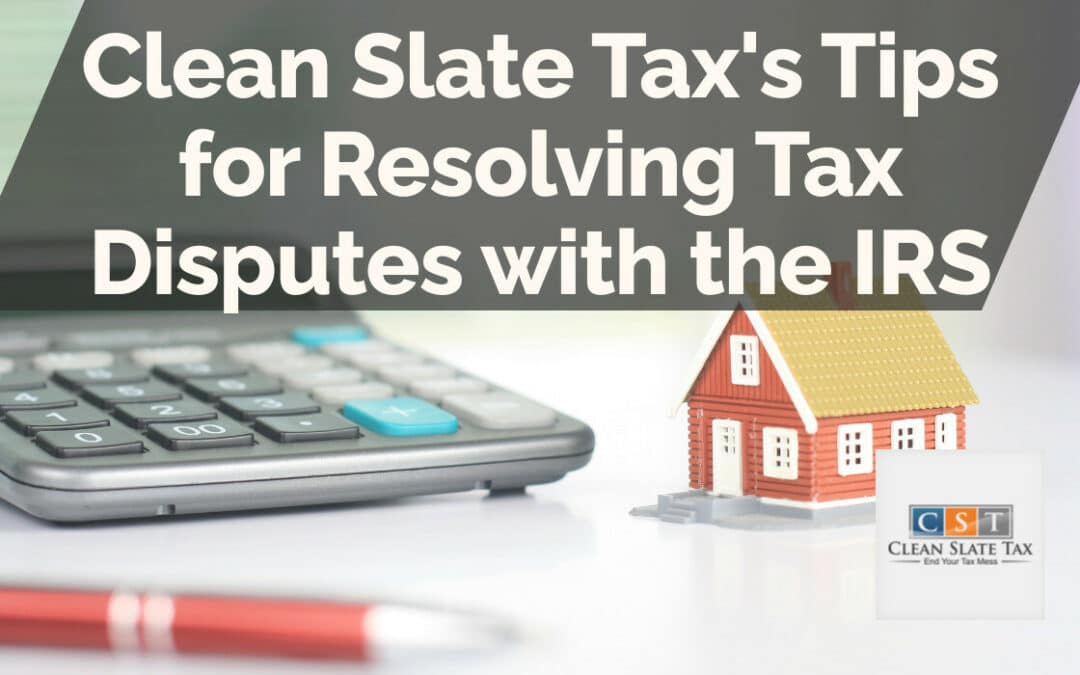Getting Started: Understanding IRS Tax Disputes
Navigating tax disputes with the Internal Revenue Service (IRS) can be a daunting task, especially for taxpayers with limited knowledge on tax matters. However, with the right information and preparation, it becomes easier to address and resolve these issues. Clean Slate Tax will guide you through this journey, providing insightful tips to help you get the best results possible.
Identifying the Cause of the Dispute
It is crucial to understand the root cause of your tax dispute. It could be as a result of an error in filing, discrepancies in reportable income or misunderstood tax rules or deductions. Identifying the problem is the first step towards its resolution.
Common IRS Tax Issues
- Back taxes: If a taxpayer fails to fulfill an outstanding debt.
- Penalties and interest: Refers to extra charges over and above the tax due.
- Collection action: The process of the IRS collecting unpaid taxes.
- Misfiled returns: Inaccurate or incomplete tax returns leading to errors in reporting income.
Effective Strategies for Resolving Tax Disputes with the IRS
Once you have identified the cause of the dispute, the next step involves finding the appropriate solution. Below are some effective strategies that Clean Slate Tax recommends:
Open Communication with the IRS
Open and timely communication with the IRS officials is essential. Be timely in your response to every communication sent to you by the IRS, and consider consulting with a tax professional if the issues are complex.
Use IRS Appeals
If you disagree with the IRS decision, consider using the IRS Appeals service. This independent organization within the IRS resolves tax disputes between taxpayers and IRS.
Consider Obtaining Professional Help
Tax disputes can be complex and require an in-depth understanding of the IRS laws. Hiring a tax professional can prove to be a valuable asset in the resolution process.
Frequently Asked Questions
When should I contact a tax professional?
When you require assistance in understanding tax laws, want to dispute the interpretation of tax laws by IRS, or need help negotiating with IRS officials on issues such as payment plans or penalty reductions, you should reach out to a tax professional.
Can the IRS waive penalties?
Yes, the IRS can waive penalties for taxpayers who qualify under its First Time Penalty Abatement policy or via other penalty relief options. However, interest charges generally continue to accrue until the full tax liability is settled.
Should I ignore IRS notices if I can’t pay?
Absolutely not. Ignoring IRS notices can result in more serious consequences. The IRS offers options such as payment plans and offers in compromise. Communicating with them about your financial situation is critical.
In conclusion, addressing tax disputes with the IRS requires knowledge, strategy, and effective communication. It’s crucially important to identify the root cause, communicate effectively, and if necessary, enlist the help of a tax professional. This will assure the highest chance of a successful resolution. Clean Slate Tax hopes these tips will assist taxpayers in skillfully resolving their IRS disputes.





